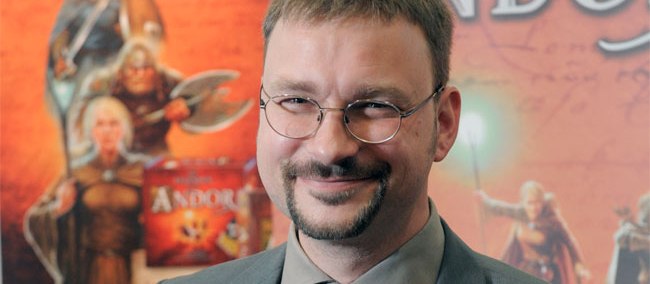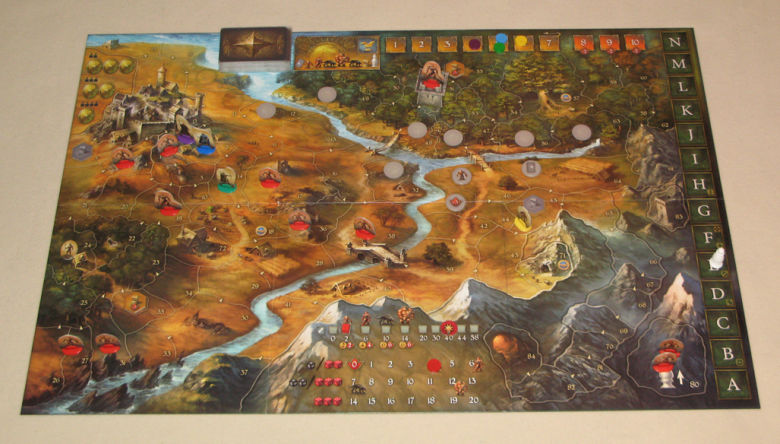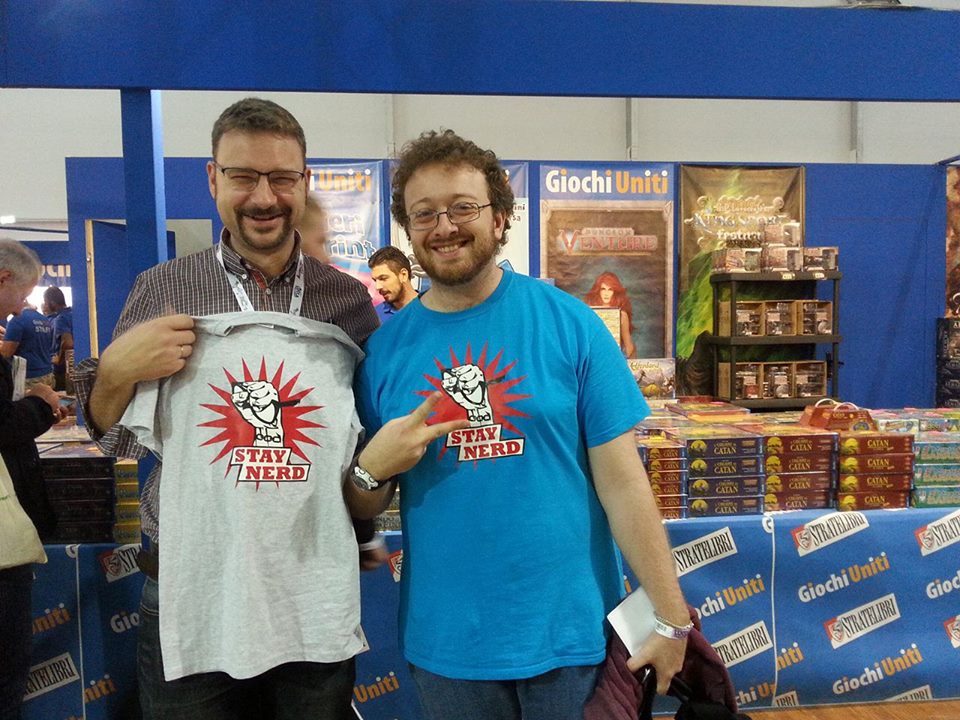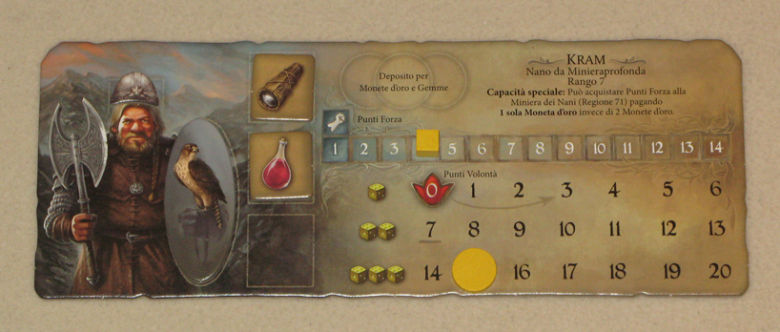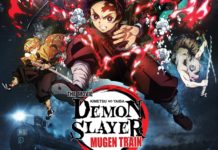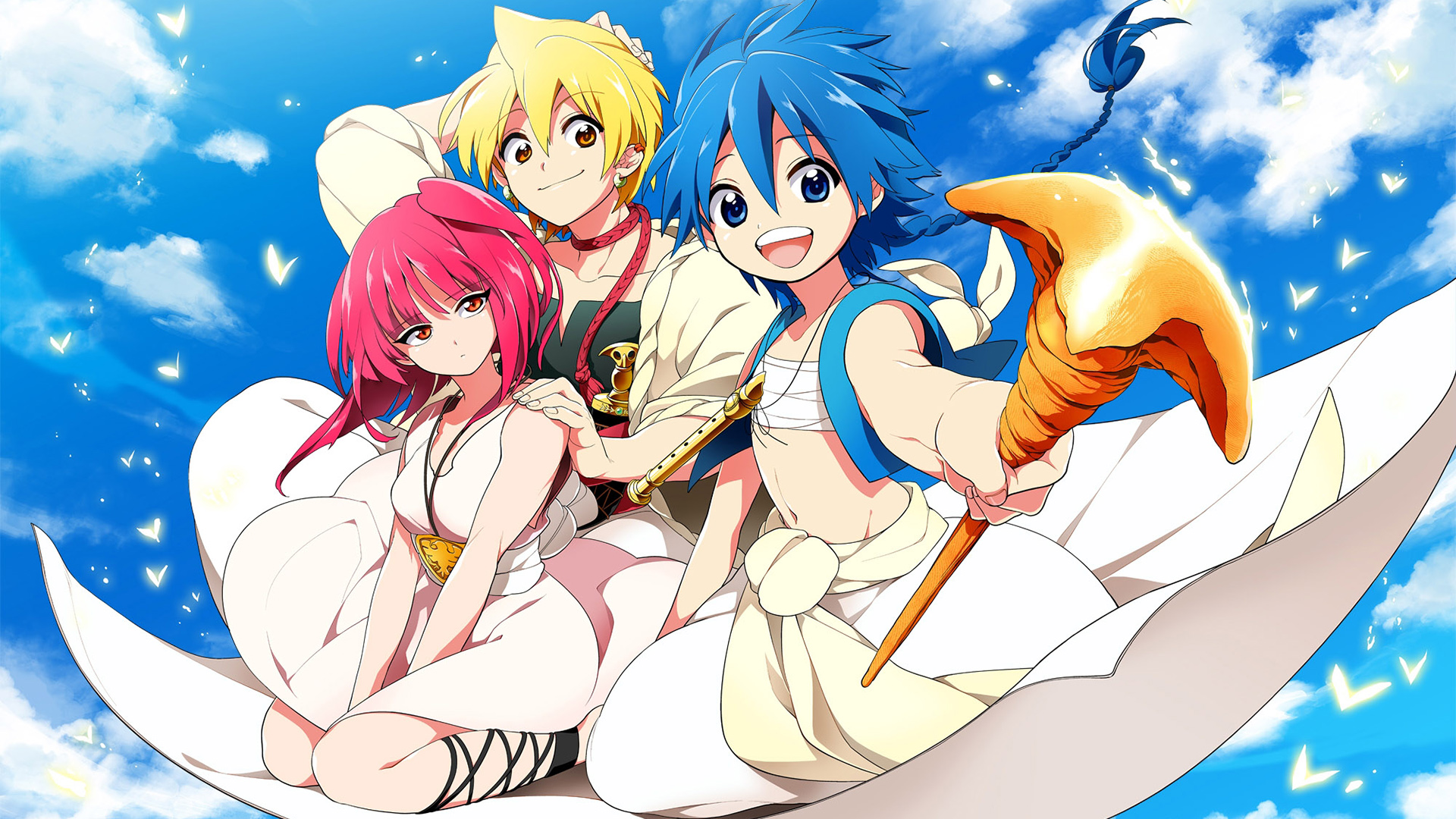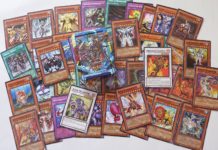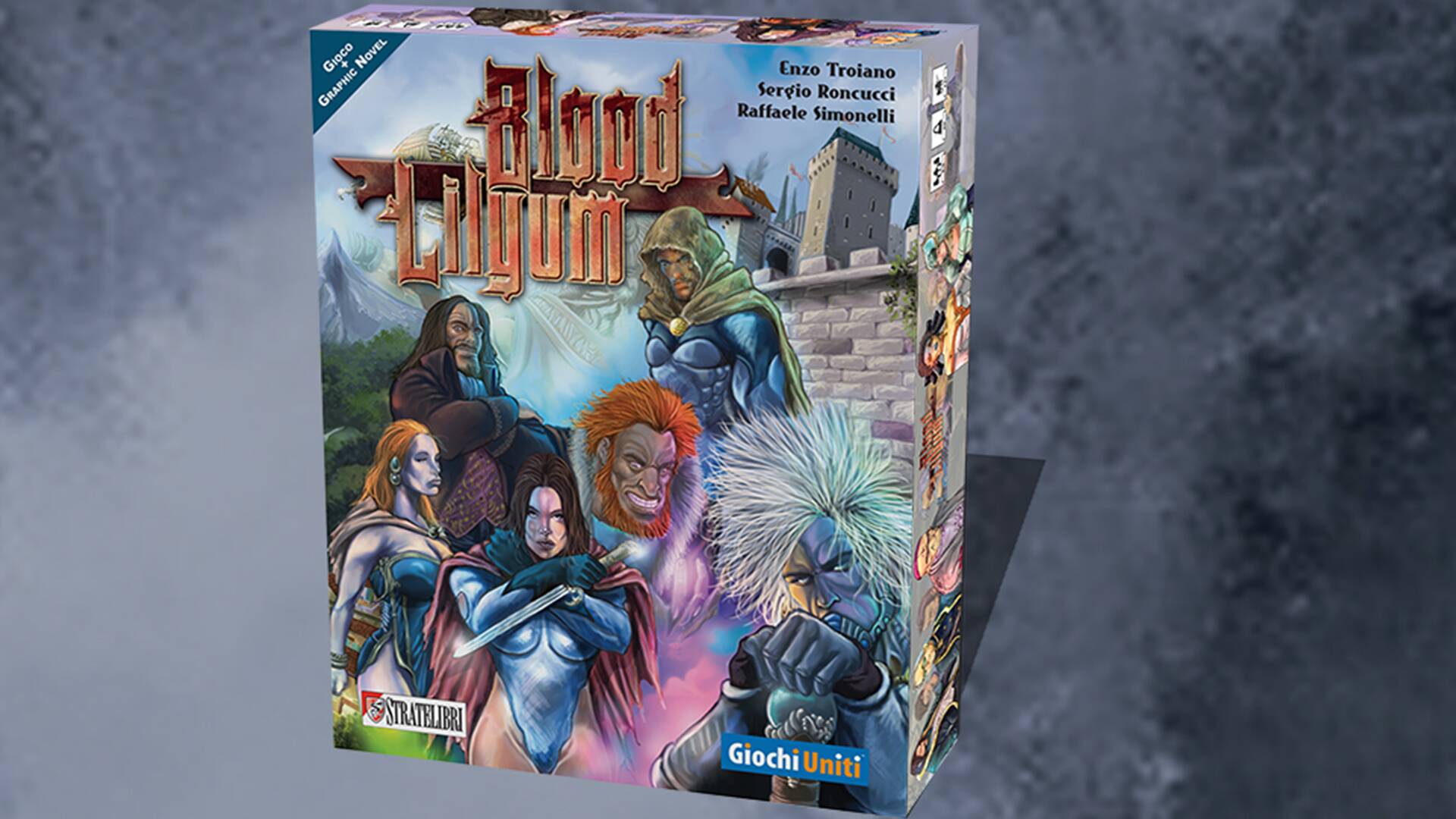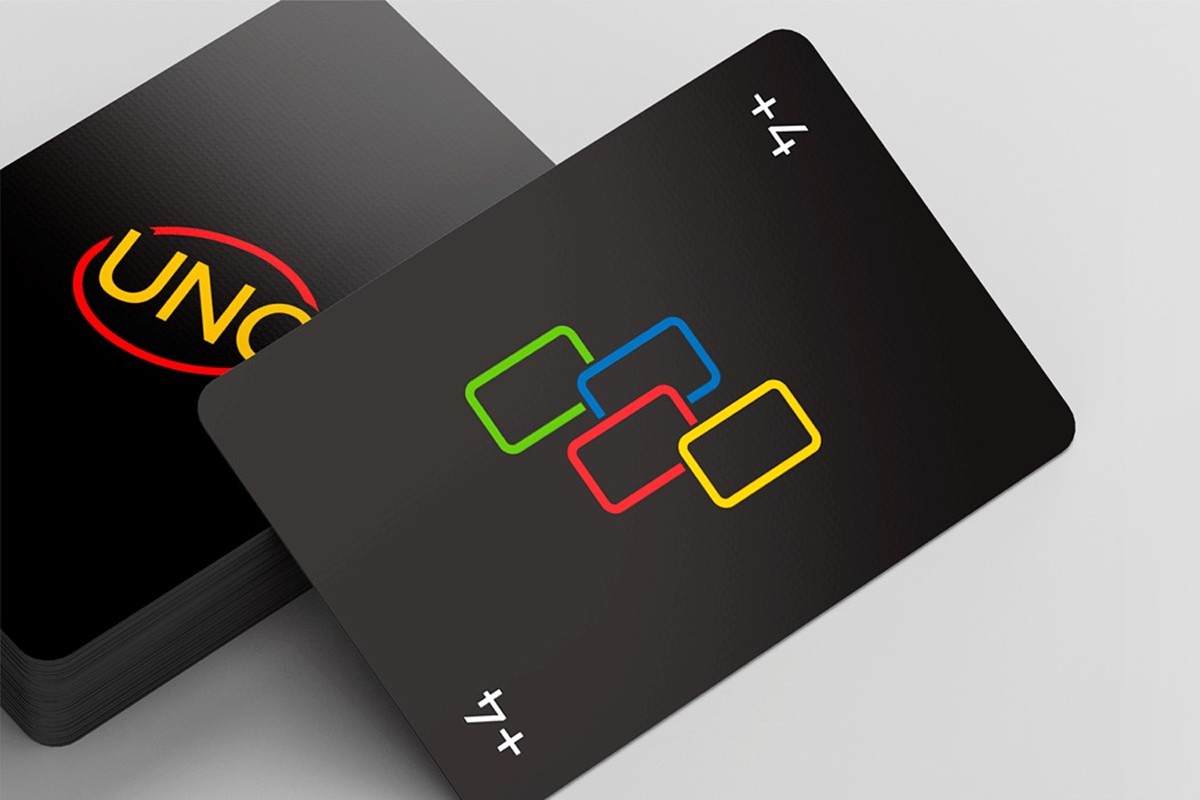First of all thank you for your time. We know that here in Lucca there will be a special event about your boardgame, Legends of Andor, do you want to tell us what is it?
Yes, I painted a special character for the game which is downloadable for free from our website. He is a magician of time, he has a special ability to gain time after a fight, and he will join the heroes I guess this December.
Would you mind telling us something about this game in general?
Legends of Andor was created for me and my son when he was much younger. He’s 17 now, but when we started he was 9 years old, and we’re Lord of the Rings fans and we were looking for a game that fits, but mostly they were too complicated for him, but also for me, I don’t like reading too much rules. So we were looking for a role playing game that wasn’t too complicated, and so we decided to do one on our own. We played it during the holidays, and every time we had some free time, we spent it playing our game and it began to grow and at some point we decided to look for a publisher and luckily they were from the first moment into it and they decided to publish it, and that’s it. It’s a role playing game which is very easy to play, so you don’t necessarily have to be an rpg fan to play it. It’s a game made for people who of course like the genre, but don’t want to read pages and pages of rules. It worked out very well for being a game invented for me and my son.
Did you expect all the success it had, and did this success change you in some ways?
No, it sells very well but I don’t feel like I’m some sort of celebrity. I can find time to do everyday stuff, you know. Sometimes people recognize you, but it’s really not that big.
You worked mainly as an illustrator for boardgames, like for example Settlers of Catan. How was to switch from being an illustrator to be the author of a game. Was it hard to set all the rules and the mechanics of the game?
It’s a complete different thing. As an illustrator it’s an easier work, they just tell me how to draw and paint and I do it. Of course I’m really passionate about painting, but it’s not that creative, I’m just doing my job.
Developing a game that need creativity, ideas, and one reason why Andor became so popular is because all we were thinking about was what we liked to play and what we had fun with, and at first we didn’t really think about publish it, so that made it fresh and unpredictable. It entertained me in the first place, and if I ever would do another game will be only for that reason, that there isn’t that sort of game that I want to play so I have to invent it by myself.
How did you enter the board game industry? Have you always been a fan of boardgames?
No. In my family we didn’t play very often, so I became fan of board games because of my job, and not the other way around, because it was necessary to play to illustrate games. I worked with computer games before, I made textures for 3D models, and there I met Klaus Teuber for the first time, so it was quite by accident, because years later I met some of the guys from that studio who were doing a card game and asked me if I wanted to do the illustration, it was called Manga Manga and it was the first time I had to draw some manga, and I don’t know if it worked really well, but that was the entrance. And since it was a great chance and I great job, I really got into it from then on.
About the illustrations, do you work mainly in digital or do you still use paper and pencil?
It’s 100% digital. When I started I made some sketches, but at one point you have really tight schedules and very less time, so I started to draw directly on the computer. But you know, it’s still art, there’s not a button to make it happen, you still have to work (laughs). But you don’t have to wait for the paint to dry, and you get cleaner hands, so it has many fortunes.
Do you have some advice for someone who would like to become a game author like you did?
As an author first of all do what you feel it’s right, try to do something new. Do just what you like, that doesn’t necessarily mean you’ll get a publisher, but you can be ok with your own games and in the end that’s more important of anything else.
As an illustrator it’s important to be in touch with the fairs, like Lucca Comics and Games, but also the smaller ones, and so with bigger and smaller publishers as well. It’s really hard for the major publishers to hire someone new, because there is so less time for developing and everyone who’s new is a risk. So if you have a produced, finished boardgame or a card game, that’s the best thing you can show. So maybe do the first job for a small amount of money and for a small company, but then you have a finished product to show to the producers.
Do you believe in crowdfunding as a way to be published?
Well, for an illustrator crowdfunding is really bad, because you have to wait to know if it will be published or not, and if you have more projects it’s possible that none of them will happen or that everyone will happen, so it makes your work really hard to plan. Also I think that boardgame industry is increasing, because even in this historical period and with all the financial difficulties, people maybe don’t go on holidays, but they still gather and play games, so the most important thing is to keep creating quality products to entertain people.
Article by Eugene Fitzherbert and Gabriele Atero Di Biase



